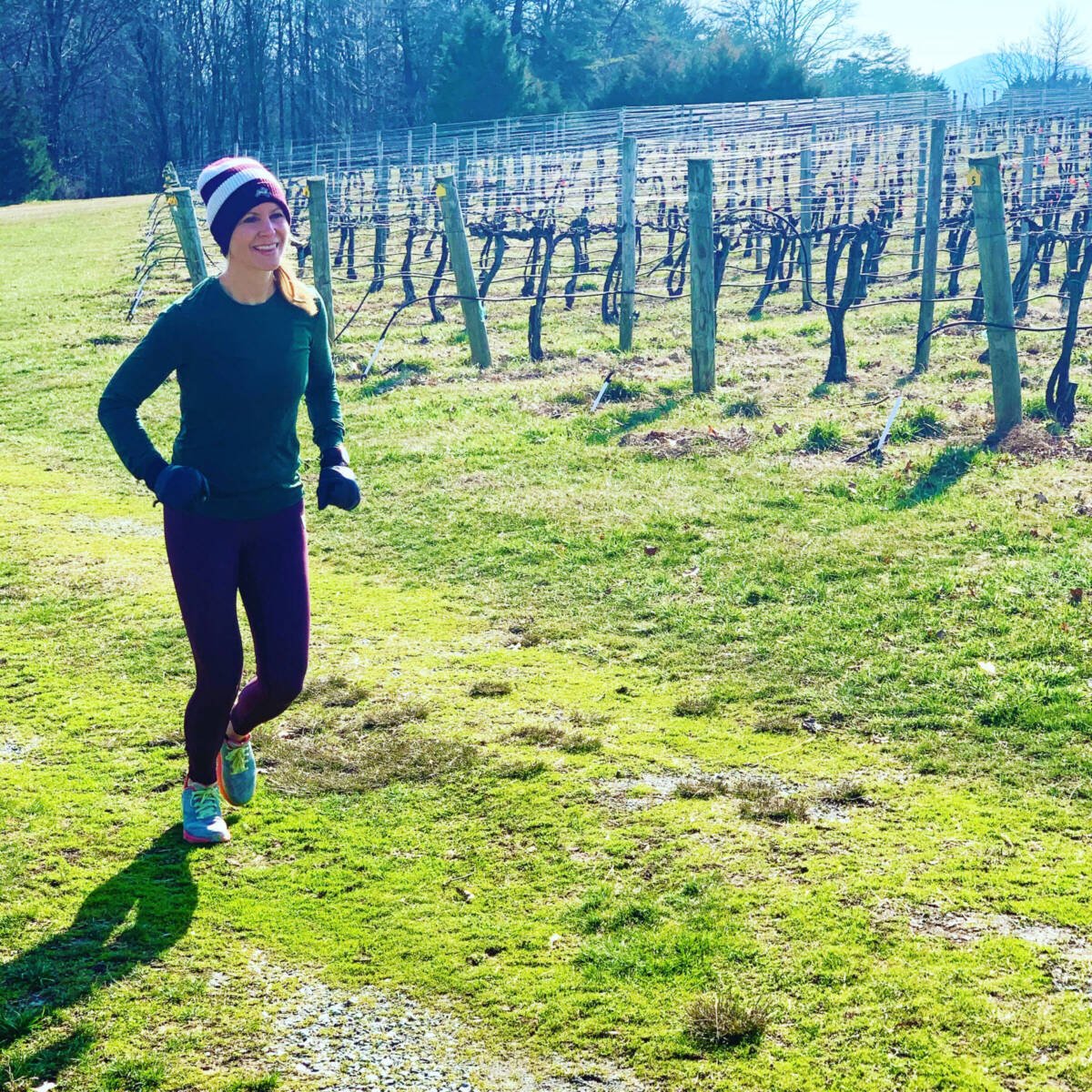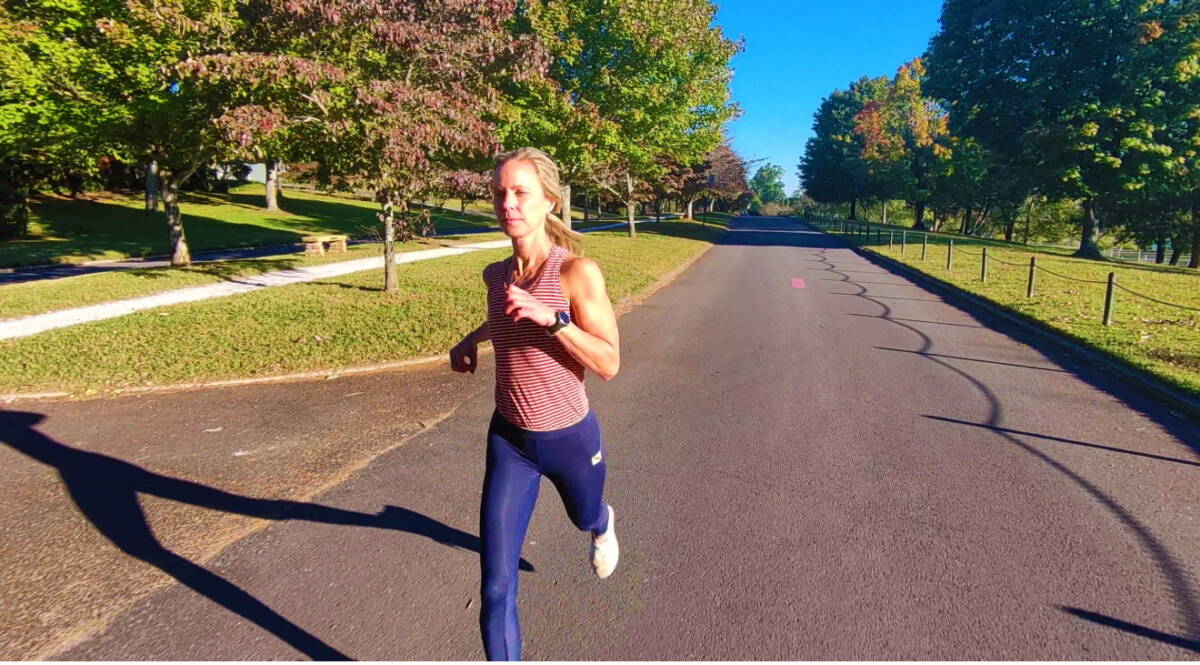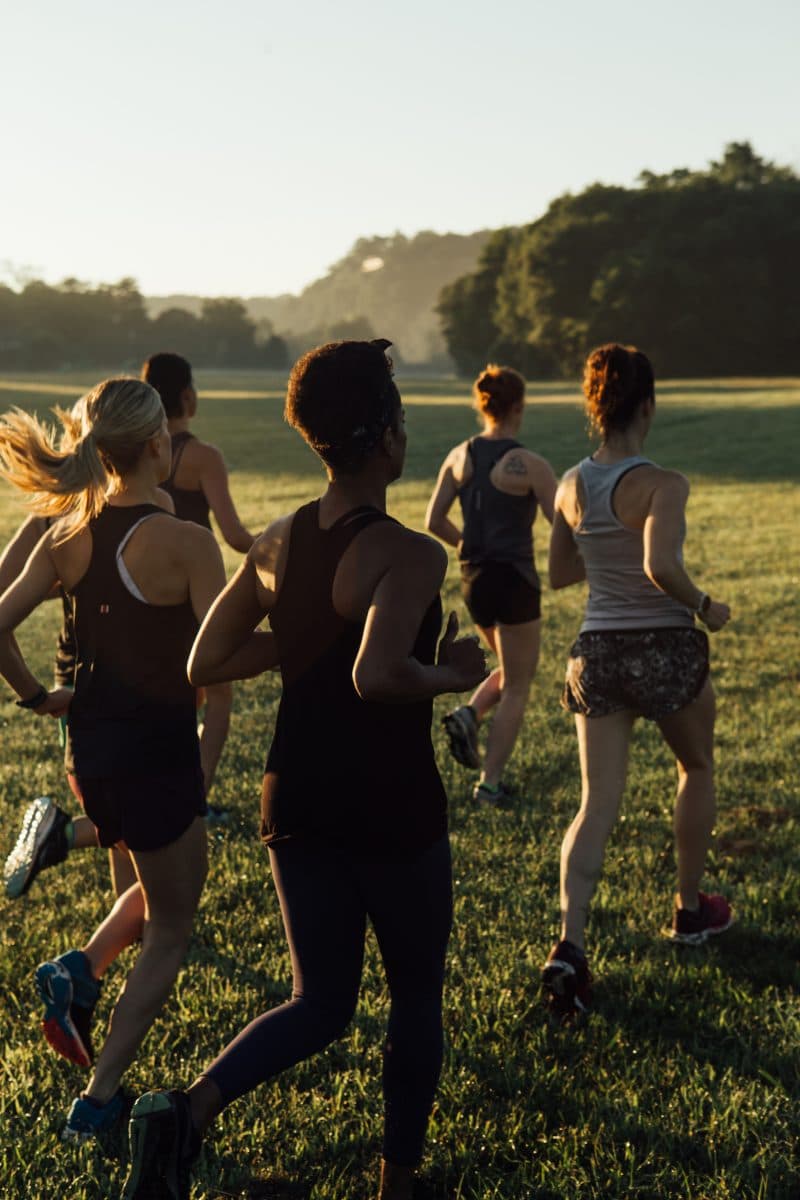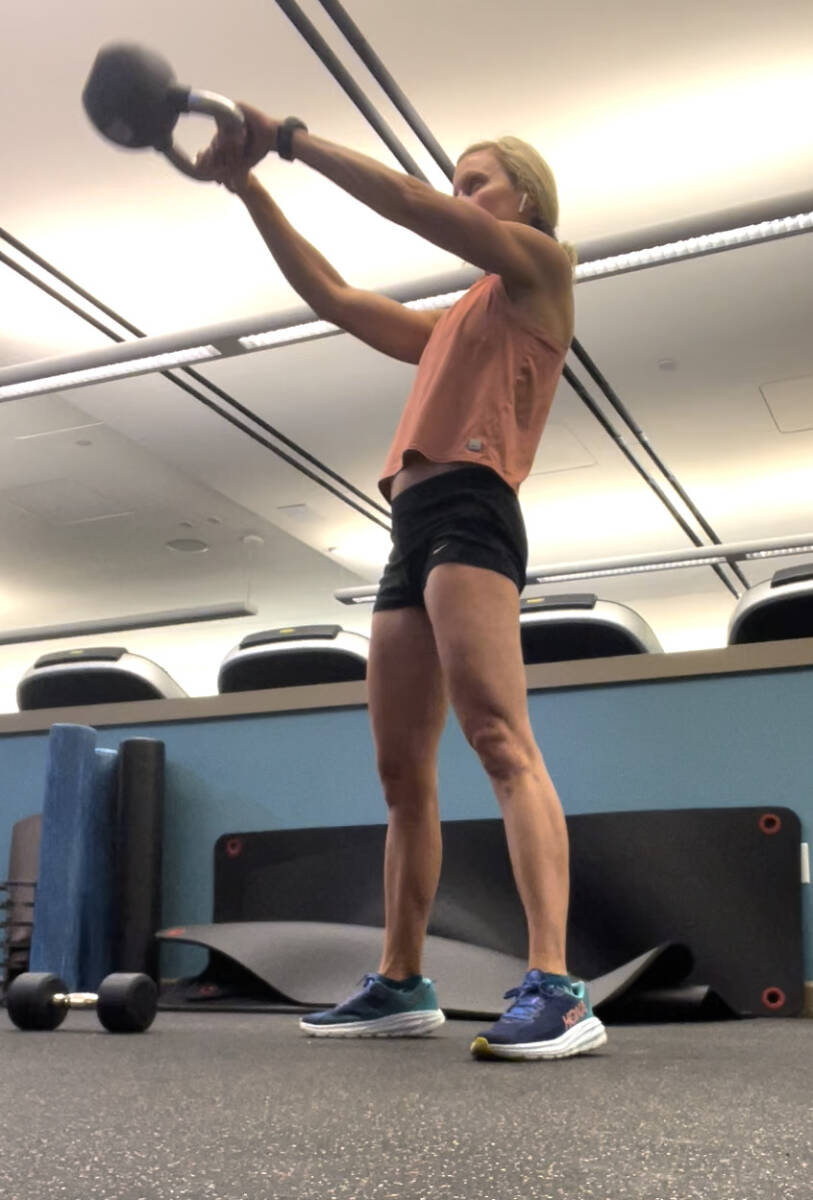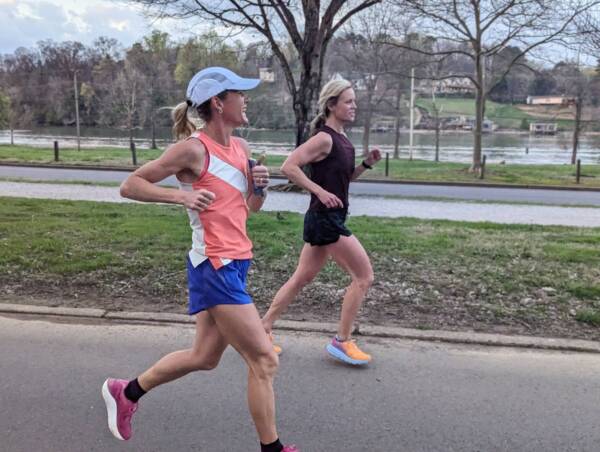What to Do If You Get Sick During Marathon Training
Getting sick during marathon training is zero fun. But it’s a reality for most runners, especially mother runners as we are super exposed to our kids and their germs–and the main caretakers. But it doesn’t mean your marathon hopes are dashed. A gradual return and a back-up race plan will allow you to chase your marathon dreams.

This school year, my family had both COVID and the flu at the same time–right when I started my marathon training block. So what do if you get sick during marathon training? Are all hopes lost?
Honestly, getting sick during marathon training is one of my biggest fears—that has been realized several times.
Skip Ahead:
My personal battle with getting sick during marathon training
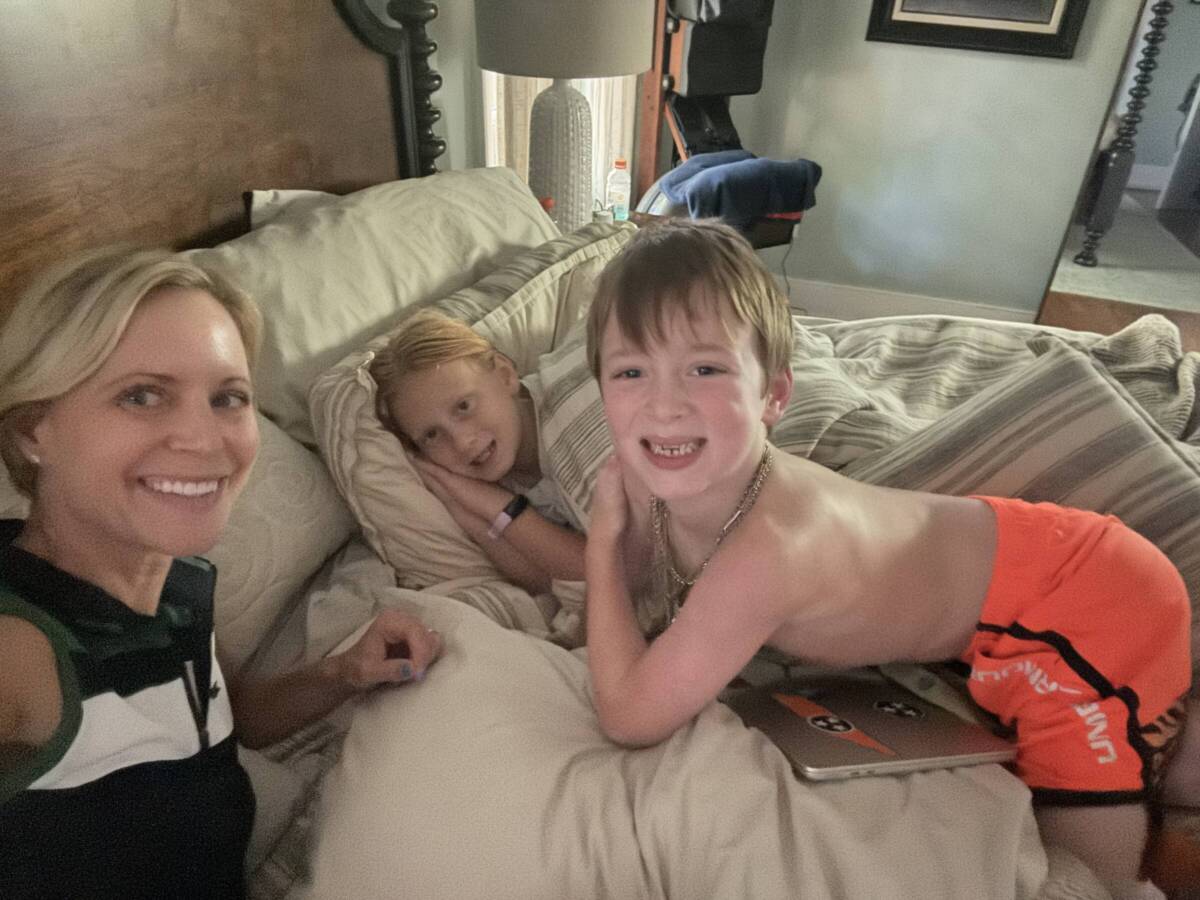
I have battled injuries for several years and was able to come back to run two marathons (CIM in December of 2022 and Carmel in April of 2023). Unfortunately, I got really sick in both of these training blocks.
During my peak training weeks for CIM (2:58), I got the flu and took several weeks to recover. For my Carmel marathon (2:54), I had a fever and couldn’t breathe (opting for a Breathe Right strip) and a lot of denial on race day. I felt awful and couldn’t even complete the shake-out the day before.
Then, this fall, after taking a year to recover from a labral tear, I had just started training for the Houston Marathon—only to test positive the day after my longest run back (17.5 miles) and my highest mileage week (70 mpw). I then dealt with post-viral inflammation and fatigue which made me unable to run for several weeks.
I am not the only one. It’s also near impossible as a mom not to get sick when you are caring for your little ones—sleeping with them breathing, coughing, snotting, and sneezing in your face. But it doesn’t have to be that way.
Rome wasn’t built or lost in a day (I am telling myself this as much as I am telling you). So in this article, I want to cover why getting sick during marathon training isn’t the death knell to your goals. And what to do if you get sick during marathon training, including how to return to running.
So, let’s go.
5 Things to Remember If You Get Sick During Marathon Training
1. You haven’t lost all your fitness.
That week of training you missed or key workout or long run are just a few bricks in the overall fitness wall you have been building. It takes two weeks of sitting on your duff, completely inactive, to lose any statistical amount of fitness (less than 3 percent). And what you lost comes back quicker the next time around.
It’s also easy to maintain fitness with cross-training activities. This 2021 article in the Journal of Strength and Conditioning Research found that endurance performance can be maintained for 15 weeks on as little as two sessions per week!
2. Niggles are normal.
Of course, you should listen to your body but don’t freak-out if old injuries seem to have come back or new niggles have appeared. This is honestly what I am dealing with right now and it is so disheartening. BUT, it is also normal.
Post-viral inflammation is real and can settle in vulnerable areas making you feel like a train wreck. In fact, I asked my Instagram followers if they had experienced this and most said they had.
If the aches and pains linger for longer than a couple of weeks, talk to you doctor as going on an anti-inflammatory regimen or taking a steroid may be an option for you. Also, be sure to avoid inflammatory triggers in your diet such as sugar and alcohol.
3. Your first run (s) back will feel terrible.
If you are returning to running after a break because you were sick, it’s normal for those first runs back to feel awful. You may feel breathless, slow, achy, and stiff. Your body has been working on fighting the virus.
Chances are you haven’t slept well, or you’ve been in weird positions, you haven’t moved around as often, your nutrition has been off, and you are fighting fatigue. This is normal. Try to give yourself grace and patience—and know that it is temporary.
Watch me attempt my first run back here.
4. Your heart rate may be higher.
Also making your first runs back feel bad is your heart rate being higher. This is also a post-viral response and usually resolves within a few weeks—sometimes longer (6 weeks) for those with COVID.
A higher heart rate can make your runs feel hard, make you feel out of breath, and also add insult to injury when it comes to your mental state.
Most runners returning to running after being sick during marathon training think it’s a sign that they have lost their fitness. But this is not true—it just means your body is still recovering from the illness, even if the acute symptoms are gone.
5. Don’t make decisions based on fear.
I get it. You hate missing running—you are missing running. And you don’t want to slowly watch your marathon goals slip away with each day you are recovering from your virus.
But don’t let fear of losing fitness rush your recovery.
Don’t rush back to running before your ready as you will risk regressing or being sidelined for longer. I have learned this the hard way time and again. Returning to running after being sick requires patience and listening to your body. It is not a “mind over matter” situation.
Instead, it is prudent to return to running when you feel 100 percent, and then gradually returning. This is the best way to set you up for success in your marathon training.
I am going to cover how to do this now.
How to Return to Marathon Training After Getting Sick
Ok, so you’ve been sick during marathon training and missed several days, or even weeks, while being sick–how do you return to running? Follow these steps which I use with the athletes I coach.
1. Wait until you feel better for at least 2 days before running.
Don’t return to running until you have felt better for a full 48 hours before trying to run. This ensures you are on the mend and minimizes your risk of regressing.
2. Start with a walk.
After you’ve felt better for 24 hours, you can try a 30-minute walk to see how you feel. If you don’t feel fatigued, cough a lot, or have any of your symptoms come back, then you are likely ready to return to running.
3. Half your usual distance.
If you feel like you are out of the illness woods and ready to return to running, start with light volume to test the waters. This is dependent on the volume the runner was doing in the first place but fost most runners doing either half of their usual daily distance or starting with a half hour. So, if you typically run 6 miles for your daily runs (on average), then run only 3 miles and see how you feel.
4. Gradually build back your volume.
You don’t want to jump right back into training for your marathon after getting sick. Instead, you should approach your training almost like a mini-taper. In general, marathon runners who have missed marathon training because they were sick should reduce their weekly volume by 50 percent in their first week back to running, then increase to about 70 percent, before returning to 100 percent of their training volume.
If you’ve taken more than two weeks off training, you will need more of gradual build with the first week likely being 30 percent of your volume. I have more details on returning to running after time off here.
5. Don’t do speedwork…yet.
If you are doing intensity aka speedwork in your marathon training, hold your horses. You want the first week of running to be just easy base miles as your body continues to recover and you get back into the groove.
The second week of your return, you begin some light dosage of speed such as strides, surges, or fast finishes to see how your body responds. Getting back into intense running too soon risks spiking inflammation and regressing your recovery.
6. Adjust your plans.
If you got sick right before your marathon and don’t feel 100 percent recovered on race day—or like you missed too much of your training—remember that there are always other races. It could be wise to look for another marathon that allows you time to recover, get a couple weeks of solid training in, before going into your marathon taper.
When it feels like all hope is lost, I like to remind myself that I have options. In fact, I have decided to put my January marathon goal on ice to give myself more time to train with eyes on an April marathon instead. Because of so many mishaps, I now almost always have a race contingency plan in mind.
What to Do If You get Sick During Marathon Training Recapped:
I hope this helps you navigate getting sick during your marathon training—which STINKS! And as mom, is such a real threat. Feel the feels if this happens to you, and then make your plan. You got this!
Reminder, a running coach such as myself can help you adjust your training if you’re sick. Learn more about my 1:1 coaching here.
Do you have a method for handling sickness when training for a marathon?

